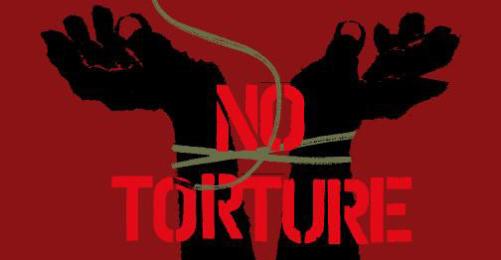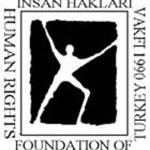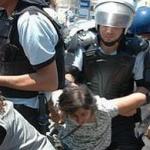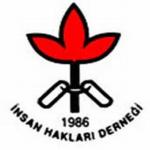According to the results of a research on "Othering and Discrimination in Turkey", 27 percent of the Turkish population say no to the absolute prohibition of torture, i.e. "no one shall be subjected to torture regardless of the crime they allegedly committed".
According to Prof. Dr Hakan Yılmaz, staff member of Bosporus University (Istanbul) who carried out the research, this figure is one of the gravest outcomes of the research.
The Turkish Human Rights Foundation (TİHV) works for the prevention of torture and the rehabilitation of torture victims. TİHV president Prof. Dr Şebnem Korur Fincanı evaluates the fact that 73 percent of the population take account of the absolute prohibition of torture as a positive outcome. Korur Fincanı told bianet, "We have given training to 3,500 physicians. 34 percent of them said that "torture could be applied in certain situations".
Korur Fincancı indicated that impunity of torture contributed to this perception. "The judiciary's approach towards the crime of torture has to change", she claimed.
Korur Fincanı pointed out that the "anti-terror" discourse which became prevalent after the 09/11 attack on the twin towers of the World Trade Centre in 2001contributed to the legitimization of torture. This, according to the TİHV president, is visible starting from TV series all the way through to legal regulations.
Absolute prohibition of torture
"People have to understand that nobody remains at a distance once the absolute prohibition of torture is worn out. Everyone can encounter torture at any time and any place. We have to establish empathy with torture victims for those who say that 'torture can be applied in certain situations'".
Korur Fincanı reminded that also the ones who are applying torture suffer damages. "They are drained of strength. Depression and suicide are common. They become violent against their environment and themselves. Torture makes the torturer a victim as well".
Korur Fincancı told bianet what journalists can do for the prevention of torture:
"Journalists should make torture visible by conveying correct information. The language must not be in tune with the legitimization of torture I previously mentioned. The most common example is reporting as if a person taken into custody deserved being tortured because of being guilty. This paves the way to torture being perceived in the context of impunity", Korur Fincanı explained.
"It is very important that journalists constantly remind the fact that torture is prohibited under any circumstances and that they reiterate the definition of torture".
According to the report worked out by the TİHV and the Human Rights Association (İHD), 305 cases of torture occurred in police custody and 358 cases outside official venues in Turkey in 2009. 34 cases of torture by village guards were reported. The number of torture cases in prison amounts to 397. 10 torture cases by private security forces were registered.
Definition of torture
According to the United Nations Convention for the Prevention of Torture, torture is defined as follows:
"Any act by which severe pain or suffering, whether physical or mental, is intentionally inflicted on a person for such purposes as obtaining from him or a third person information or a confession, punishing him for an act he or a third person has committed or is suspected of having committed, or intimidating or coercing him or a third person, or for any reason based on discrimination of any kind, when such pain or suffering is inflicted by or at the instigation of or with the consent or acquiescence of a public official or other person acting in an official capacity. It does not include pain or suffering arising only from, inherent in or incidental to lawful sanctions". (TK/VK)














